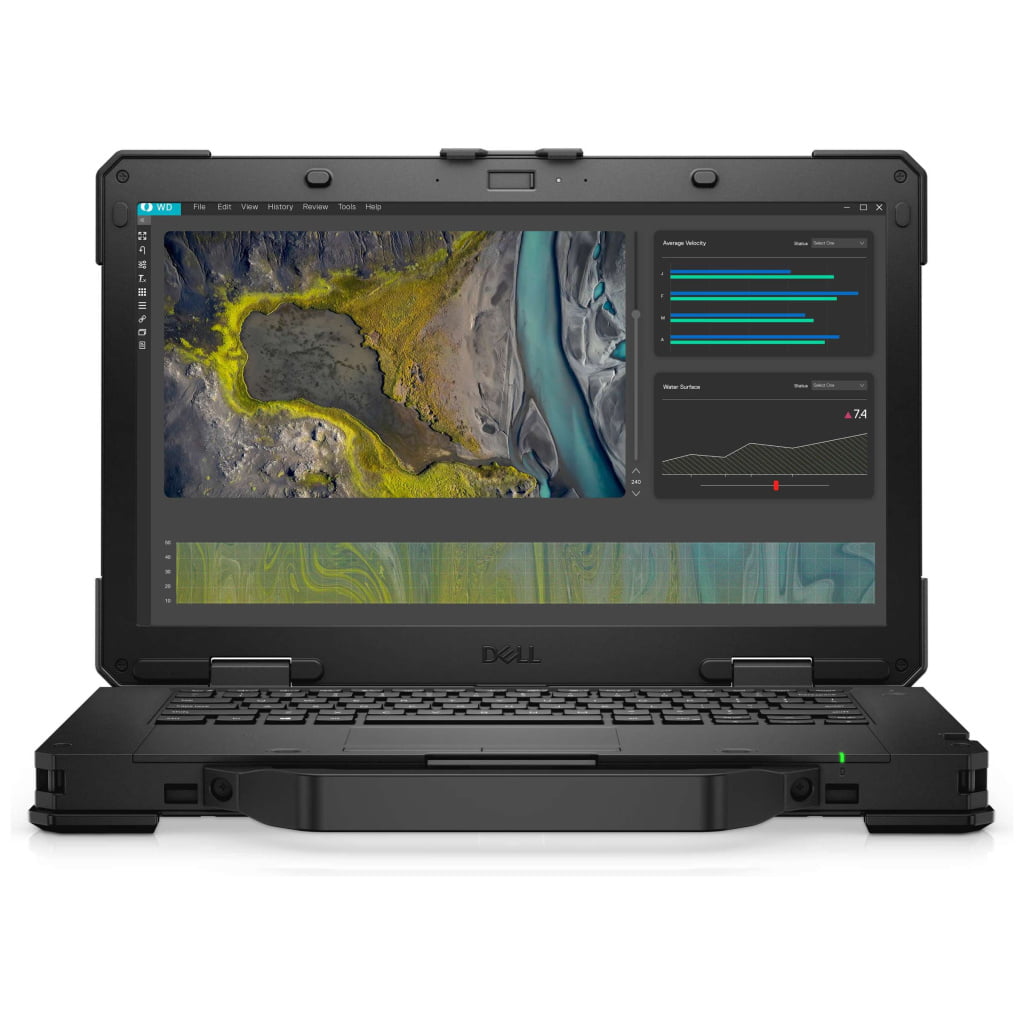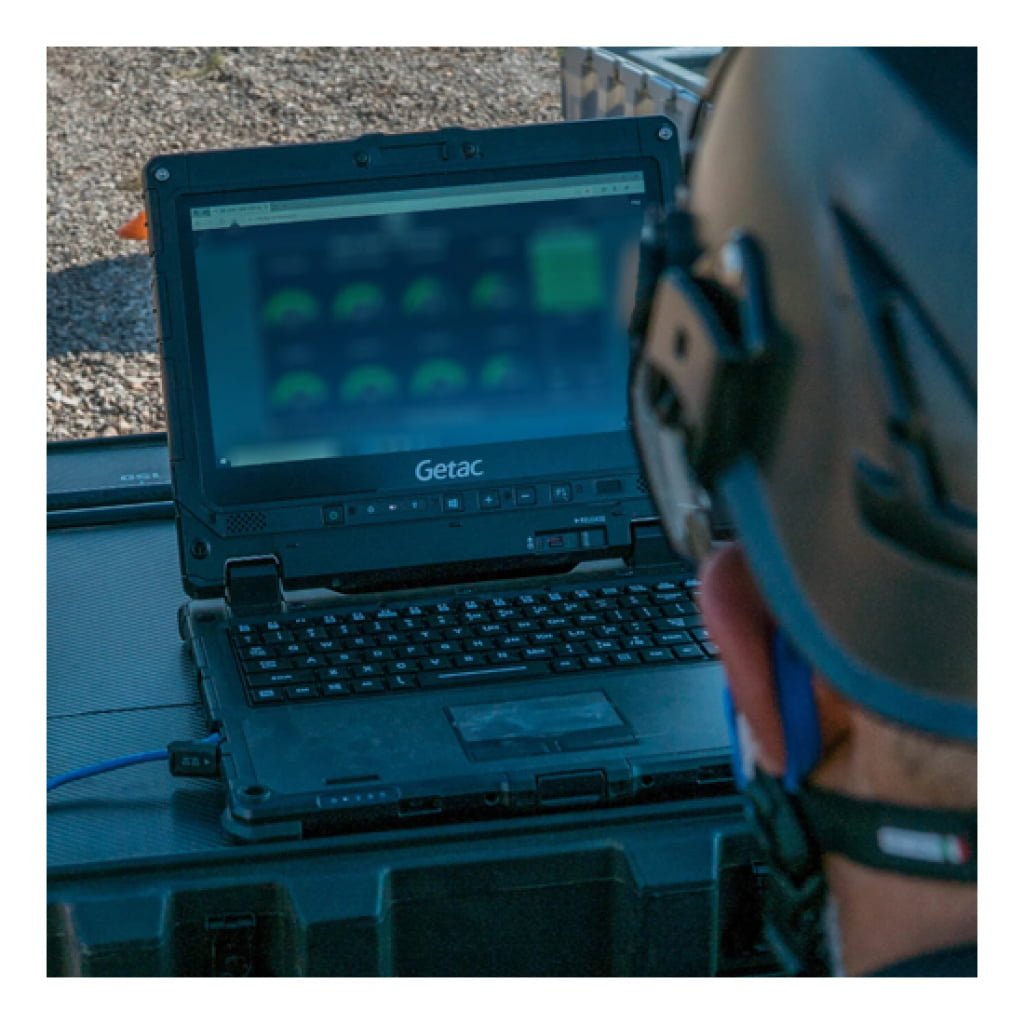In the high-stakes world of military operations, the demand for robust and reliable equipment is paramount. Rugged technology includes laptops, tablets, and other devices engineered to withstand the toughest conditions. Unlike standard consumer electronics, rugged devices are typically designed according to military specifications, known as MIL-STD, which sets the standards for durability and performance in harsh environments.
Military operations often involve exposure to extreme temperatures, moisture, dust, and shock — all of which can severely damage typical commercial technology. Rugged devices, however, are built with reinforced frames, shock-mounted hard drives, and screens that can be read in direct sunlight. Their sealed ports prevent ingress of contaminants, and their ability to operate effectively from deserts to the Arctic ensures operational readiness across various terrains.
Rugged technology’s key features generally include:
These devices often carry certifications like IP ratings, which define levels of sealing effectiveness against intrusions such as dust and water. Additionally, they might be certified to pass the electromagnetic interference standards, ensuring the proper functioning of the equipment despite radio-frequency interference, which is common in combat scenarios.
Rugged technology is designed not just to survive, but to guarantee optimal functionality in the diverse and unpredictable theaters of military engagement. The successful integration of these devices into military operations greatly contributes to the strength, agility, and tactical efficiency of military forces, ensuring that personnel remains connected and mission-ready, regardless of external conditions.

In the rigorous environs of military operations, traditional computing devices falter, but rugged laptops and tablets are engineered to prevail. The military sector demands equipment that can withstand a plethora of extreme conditions, extending far beyond the capabilities of standard consumer electronics.
Military-grade rugged laptops and tablets come encased in strong, often reinforced, materials. These can typically endure:
Furthermore, rugged military devices are designed with:
These devices often exceed the MIL-STD-810G military standards, a benchmark for measuring environmental ruggedness and operational durability. Such standards cover a multitude of scenarios, including exposure to rapid temperature change, high altitude, and corrosive environments.
Through rigorous testing and certification processes, rugged laptops and tablets are tailored to maintain optimal performance. Their resilience ensures that military personnel can rely on their equipment in diverse and unpredictable situations, thereby enhancing tactical efficiency where traditional devices would succumb to the elements.
Military operations often involve handling classified or sensitive information that necessitates robust security features. Rugged laptops and tablets designed for military use are equipped with a suite of enhanced security capabilities to ensure the confidentiality, integrity, and availability of critical data. Here are some key security features present in these devices:
These enhanced security features are essential for maintaining operational integrity and protecting sensitive military data. By integrating cutting-edge security technologies into their rugged devices, military personnel can execute their missions with the confidence that their equipment is safeguarding vital information against an array of cyber and physical threats.
In the demanding environments where military operations take place, the synergy between devices is crucial for mission success. Rugged laptops and tablets are specifically designed to be compatible with a wide array of military-grade equipment, ensuring seamless integration and communication.
Rugged laptops and tablets bridge technology with tactical demands, resulting in devices that not only withstand the harsh conditions of military use but also complement and enhance the broader array of military-grade equipment in the field. Their tailored design for interoperability increases the overall efficiency and effectiveness of military operations.

In the harsh environment of military operations, equipment must withstand extreme conditions. One critical characteristic of rugged laptops and tablets is their resistance to vibration and shock, which are common in combat scenarios. These devices are engineered to endure the rigors of transport in military vehicles over rough terrain and to absorb the impact from drops and collisions that occur during the haste of a mission.
Military-grade devices follow stringent military standards like MIL-STD-810, which outlines tests for vibration, shock, and other environmental stressors to ensure functionality after exposure to such conditions. These tests include:
The design of rugged military laptops and tablets often incorporates features such as:
These attributes not only ensure that the device remains operational after a sudden impact but also help protect the critical data stored within, which is vital in a combat scenario where data integrity can be the difference between a mission’s success and failure. Thus, in the unpredictable and high-stakes theater of war, the resistance to vibration and shock inherent in rugged laptops and tablets is not just a feature—it is a necessity for tactical efficiency and operational readiness.
In the landscape of military operations, the endurance of electronic devices is critical. Rugged laptops and tablets designed for military use incorporate extended battery life to support longer missions where charging facilities are scarce. The integration of high-capacity batteries ensures that personnel can complete tasks over extended periods without the need for frequent recharging.
Military operations benefit from this prolonged battery life as it offers increased reliability and autonomy in the field. Missiles, drones, and other critical operations rely on these devices for mission planning and execution, and extended battery life means that soldiers are not left vulnerable due to power shortages. These rugged laptops and tablets enable military personnel to remain agile and responsive, significantly enhancing tactical efficiency across a multitude of scenarios.
Rugged laptops and tablets are designed to withstand the unpredictability of military operations, especially in hostile environments. Militaries demand devices that function seamlessly despite adverse conditions, and ease of use is paramount for tactical efficiency on the battlefield.
These features ensure that military personnel do not need to fiddle with their devices during critical moments. Instead, they can stay focused on the mission, secure in the knowledge that their equipment will respond reliably. Rugged laptops and tablets allow for uninterrupted strategic coordination and communication, which is indispensable for mission success in challenging environments, exemplifying the importance of usability married to resilience.

In the military sector, mission success often hinges on the ability to rapidly adapt to changing scenarios. Recognizing this, manufacturers of rugged laptops and tablets offer a range of customization options to address specific military needs.
These customization options ensure that rugged laptops and tablets can be modified to enhance tactical efficiency, providing the military with technology that adapts to the dynamic nature of their operations.
In the military sector, where operations can extend to some of the most challenging environments on earth, traditional computing devices falter, leading to frequent replacements or repairs. Rugged laptops and tablets, engineered to withstand extreme conditions, present a more cost-effective solution over the long term. The initial investment in rugged computers might be higher, but their durability reduces the total cost of ownership (TCO) in several key ways:
The integration of rugged laptops and tablets into military equipment arsenals promotes an efficiency that eventually balances the scales of their higher upfront costs. Ultimately, the practicality and longevity of rugged devices embody a smart investment for military applications, ensuring operational readiness and fiscal prudence.
In modern military operations, rugged laptops and tablets have become invaluable assets, evidenced by numerous case studies that highlight their contribution to tactical efficiency. Here are a few such instances:
These cases exemplify the versatility and reliability of rugged technology in diverse and demanding military scenarios. They affirm that the investment in ruggedized devices is justified, as they enhance tactical efficiency and enable the military to operate effectively across a spectrum of challenging environments.
Rugged laptops and tablets afford military operations a strategic advantage unparalleled by conventional devices. In the demanding and often hostile environments of military engagements, technology must withstand a barrage of physical challenges. The durability of rugged devices ensures continuous operation despite drops, vibrations, extreme temperatures, dust, and water exposure. This reliability under pressure is not merely a convenience but a critical component that could mean the difference between mission success and failure.
The inherent design of these rugged units allows for enhanced tactical efficiency. Soldiers can focus on their immediate tasks without the distraction or delay caused by equipment failure. Moreover, the long-term durability translates to a lower total cost of ownership, as rugged devices require fewer repairs and replacements over their lifecycle compared to standard technology.
Rugged devices also come equipped with advanced security features tailored for defense operations, protecting against data breaches and unauthorized access. In an age where cybersecurity is as vital as physical robustness, this aspect cannot be overstated.
In conclusion, the integration of rugged laptops and tablets into military tactics is not merely a trend but a transformative shift. It promotes operational continuity, secures a technological advantage on the battlefield, and ensures that the military forces can rely on their equipment when it matters most, thereby significantly impacting the outcome of operations and maintaining national security.
Durability: Designed to withstand harsh environments including extreme temperatures, moisture, and rough handling.
Reliability: High reliability ensures operational effectiveness with less downtime due to equipment failure.
Security: Advanced security features protect sensitive military data against cyber threats
Data Access: Provide rapid access to critical information in the field.
Communication: Enhance real-time communication and coordination among military personnel.
Navigation: Equipped with GPS and mapping tools to aid in tactical maneuvers.
Rugged devices for military use typically include options such as Wi-Fi, cellular (including SATCOM for remote areas), GPS, and NFC/RFID for secure, versatile field communication.
While the initial investment may be higher than commercial devices, rugged laptops and tablets offer long-term cost savings due to their durability, extended lifecycle, and reduced need for replacements.

Ulrik is an industry veteran with over two decades of expertise working with rugged computers and mobile barcode scanners. Brands include Panasonic, DELL, Getac, Zebra, and Honeywell/Intermec. He is known for his commitment to delivering products and solutions that increase operational efficiency. Dedicated to following new market trends and client satisfaction, Ulrik is a trusted advisor where rugged computers and mobile barcode scanners must be deployed.

Micro Nordic was founded in 2004 with the objective of offering customers fast, reliable and cost-efficient Rugged Mobile Product Solutions. We specialize in delivering current, End-of-Life and hard to find laptops, tablets and barcode scanners from leading manufacturers, such as PANASONIC, GETAC, DELL, ZEBRA & HONEYWELL.
We operate globally and can deliver bespoke turnkey solutions based on your requirements.
Micro Nordic ApS
c/o a. Hartrodt
11411 NW 107th Street
Suite 6
33178 Miami
USA